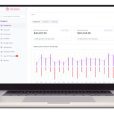As an investor in the digital era, we are exposed to many choices when it comes to managing our securities transactions. The competitive broker market itself presents a multitude of product variations at different price points, ranging from high service over-the-phone brokers to online neobrokers which strive to offer the lowest fees as possible. In saying so, which option is the most suitable for beginner investors?
Available brokerage models: CHESS vs Custodial
Firstly, there are two different approaches in managing securities transactions. The first one is CHESS (Clearing House Electronic Subregister System), a system operated by the Australian Securities Exchange (ASX) to manage the clearing and settlement of securities and bonds transactions. In the CHESS model, the broker or dealer executes trades on behalf of their clients and records the transaction details in the CHESS system. The CHESS system then updates the ownership records of the parties involved and settles the transaction.
On the other hand, the Custodial model is a way of managing securities transactions where a custodian, usually a bank or other financial institution, holds and safeguards the securities on behalf of the owner. The custodian handles all the administrative tasks related to the securities, such as dividend payments and corporate actions. The owner retains the economic rights associated with the shares, but the custodian holds the shares and manages them according to the owner’s instructions.
The main difference between CHESS and Custodial models
The main difference between both models is that in the CHESS model, the securities are directly registered in the name of the investor, while in the Custodial model, the securities are held in the name of the custodian on behalf of the investor. This means that in the CHESS model, investors have direct ownership and control over their securities, while in the Custodial model, investors rely on the custodian to manage their securities.
CHESS-sponsored brokers
Trading with a CHESS-sponsored broker means that the ASX has a record of your buying and selling activities, because to register shares under someone’s name, the CHESS-sponsored broker must issue a Holder Identification Number (HIN). HIN is a unique number that identifies a person as a CHESS sponsored shareholder. If a person changes brokers, the HIN will always be attached to them and follow them as long as their next broker is also CHESS-sponsored. A HIN usually starts with the letter “X” followed by ten numbers (e.g. X0001234567).
Opening a CHESS-sponsored account is commonly done through institutional brokers, which act as intermediaries between the institutional clients and the market, providing research, trading advice, and execution services. They use sophisticated trading tools and technology to execute large, complex, and high value trades.
Pros of trading with CHESS-sponsored brokers:
(1) Direct ownership
With a CHESS-sponsored system lodged with the ASX, you’re the legal owner of the shares because of your HIN. Your broker or trading platform simply acts as a middleman between you and the ASX.
If the broker went bankrupt, your share ownership and holdings won’t be impacted. You can shift your holdings over to another platform to continue trading
(2) Voting rights on shares
CHESS-sponsored share ownership offers you voting rights, while in custodial model it is up to the custodial whether to relay the voting rights to their investors or not
(3) Easier to switch brokers using HIN
Cons of trading with CHESS-sponsored brokers:
(1) Lacks access to international markets.
The CHESS model is an Australian system, so it won’t be applicable for trading in other international share markets. Most of the world’s largest share markets, including the US, run off a custodial mode
(2) Higher brokerage fees
(3) CHESS-sponsored shares aren’t eligible for fractional shares
This might hinder beginner investors from buying high value stocks that are hundreds of dollars per share.
Custodial brokers
The alternative of trading with institutional brokers is trading with custodial brokers. You have rights to your assets and can withdraw them, but the assets will be managed by the custodian, which might merge your assets together with other shares owned by other clients under the custodian’s name or manage the shares under an omnibus trust account structure. The third party keeps a log of who owns which shares.
Finding a custodial broker is significantly easier now with the emergence of fintech and neobroker companies. Investors can open their account online via online trading platforms within a few minutes, and manage their account via a mobile app. Custodial brokers are focusing on providing a more efficient and cost-effective service compared to institutional brokers.
Pros of trading with Custodial brokers:
(1) Lower fees
Custodial broker fintech companies often have lower overhead costs and can leverage technology to provide more efficient services, therefore they can charge lower fees
The fees may be structured as a percentage of assets under management, a flat fee, or a combination of both
Custodial brokers may also generate revenue from other sources, such as trading commissions or foreign exchange spreads
(2) Access to a wide range of securities
Custodial brokers can hold a variety of assets from international markets and exchanges, allowing investors to access a wider range of securities at various price points
(3) Specialised services
Custodial brokers can provide specialised services such as proxy voting, corporate actions, and foreign exchange, which may be difficult for individual investors to access on their own
Cons of trading with Custodial brokers:
(1) Limited control
Investors may have limited control over the management of their assets when using a custodial broker, as the broker is responsible for executing trades and managing the custody of the securities
(2) Counterparty risk
Custodial brokers are counterparty to their clients’ trades, which means that if the broker fails or becomes insolvent, the investor will lose their assets
(3) Limited Customer Support
Custodial brokers may not provide the same level of customer support as institutional brokers who are usually able to give one on one advice. Investors may need to rely on online resources or self-help tools to manage their account and resolve issues
It’s important to note that these potential pros and cons may not apply to all CHESS-sponsored or custodial brokers, and some investors may find that the benefits of working with either broker outweigh these drawbacks.
Ultimately, the choice between the CHESS and custodial models will depend on a variety of factors, including the investor’s preference for direct ownership or reliance on a third-party custodian, as well as the specific requirements of the securities being traded. It also depends on whether they prefer the less-risky model that CHESS-sponsored brokers have, or if they prefer lower transaction fees that custodial brokers offer.
As with any type of brokerage model, it’s important to do thorough research and carefully consider your options before making a decision.
- IPO Watch: The Australian Wealth Advisory Group set for ASX entrance - December 15, 2023
- Harris Technology gears up for Christmas as consumer electronics and household tipped to be among most popular purchases - November 27, 2023
- Linius Technologies sprints into the US college sports with automated game highlight technology - November 23, 2023













Leave a Comment
You must be logged in to post a comment.